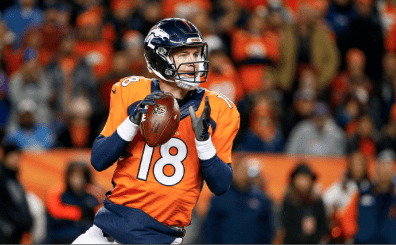By Andrew Scott
The day after Christmas, news outlet Al Jazeera published a report that linked Peyton Manning to Human Growth Hormone (HGH) supplements. The sources said that the supplements were sent to Manning’s wife, and Peyton immediately denounced and decried the “false” reporting.
Charles Sly, the man who initially reported that he had given HGH to Manning as well as other athletes like Ryan Howard, oddly recanted his statement immediately after the report was released. Most had thought the story had been pushed under the rug.
In early January, The New York Times published a piece that connected fitness trainer Jason Riley to multiple names in the Al Jazeera report, including Manning. This trainer was business partners with Sly. The Times found that nearly all the names of those that Sly initially reported were linked to Riley. Sly and Riley founded a nutrition supplements company together that shut their website down soon after this report came out.
My point in all of this is that this entire story is extremely peculiar. People love Manning (and his commercials), and he is very well respected among the media. But in this case, there is evidence connecting a pharmacist who sent HGH to his wife so that Manning could use the drugs to heal from a nearly career-ending neck injury. After that neck surgery, Manning has gone on to and will make a total of $92 million if he decides to play next year, including bonuses.
The theory is clear: Manning used HGH to heal from the neck injury, and had it sent to his wife to prevent any connection to himself. He worked out with a trainer that had a trainee of his suspended by the NFL for doping, and the pharmacist that is on tape for hours claiming to have sent HGH to the Manning household, is suddenly saying he lied.
To me, the entire situation doesn’t make sense. There is clear evidence that links Peyton Manning to HGH.
In 2011, why wouldn’t Manning think about taking HGH, knowing he has the opportunity to get a monster contract from any team in the NFL needing a quarterback? Is it a coincidence that Manning posted a career high in passing yards and touchdown passes in 2013? Perhaps.
But there is enough evidence here that this link deserves more reporting. Right now, most media personalities won’t talk about the report, because, “Peyton Manning would never take HGH.” That’s a shame.
I am not accusing Manning of taking HGH. This report, however, deserves more scrutiny, because the connections it makes could change how sports fans view Peyton Manning. There are real, plausible links in this HGH chain. Let’s hope we find out more in the coming weeks.
Andrew Scott is a student at SMU. He writes weekly columns on national and local sports teams.









